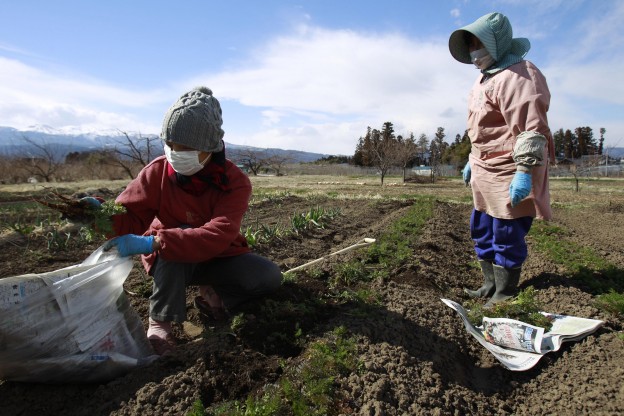TPP sides set to keep food safety regimes

Kyodo | Aug 28, 2013
Additive, pesticide rules exempt
TPP sides set to keep food safety regimes
BANDAR SERI BEGAWAN – The 12 countries involved in the Trans-Pacific Partnership negotiations are unlikely to ease their individual food safety standards as the subject is not being discussed in the free-trade talks, negotiation sources said Wednesday.
While this means Japan can maintain its regulations on food additives and pesticides that are stricter than international standards, easing of such rules could still be dealt with in upcoming rounds of Japan-U.S. bilateral talks to be held in parallel with the TPP negotiations, as Washington has called for simpler regulations.
Some Japanese consumer groups have expressed concern that the TPP could undermine domestic food safety.
As food safety standards is one topic that has already reached the advanced stage of TPP negotiations, no working group sessions on the subject are scheduled to be held during the round of talks under way in Brunei through Friday.
International standards for food additives and pesticides are set by the Codex Alimentarius Commission, an organization established by the World Health Organization and the Food and Agriculture Organization. But under a World Trade Organization rule, a country can set its own standards based on scientific grounds, as the frequency and amount of consumption of food products vary from country to country.
In the TPP negotiations, countries have been seeking to retain the WTO rule but create clearer rules on the scientific basis for altering the standards.
The WTO rule is also going to be upheld in the Japan-U.S. parallel negotiations, but the United States has criticized Japan’s process for reviewing new food additives as taking too much time. Washington also says Japan’s regulation that requires reviews of fungicide separately from those on additives is excessive.
Japan and the United States have agreed that their parallel negotiations will be reflected in the TPP rules or in other forms of regulation.
Meanwhile, sources said Japan has held bilateral negotiations on elimination of tariffs with the U.S. and Australia during the ongoing TPP talks in Brunei.
The two major farming countries had previously been expected to hold off on talks with Japan until after the current round, as the U.S. has not finished assessing the impact of eliminating tariffs on Japanese products and Australia is scheduled to hold a general election Sept. 7.
The negotiations were held at the strong request of Japan, which only joined the TPP talks last month.
Domestic pressure is high in Japan to retain tariffs on rice and other key farm products to protect them from cheaper imports. But Tokyo also hopes to eliminate tariffs other countries impose on goods manufactured in Japan.
As U.S. Trade Representative Michael Froman said Friday that Washington expects to make its tariff offer for Tokyo in mid-September, the latest bilateral talks are likely to have been limited to how to proceed with the negotiations from September and fixing a starting point for negotiations on the percentage of tariff-free items.
Australia is also believed to have refrained from proposing a list of items for eliminating tariffs ahead of the election that could bring about a change in government.
Japan has also held bilateral negotiations with Mexico, Vietnam, Canada, Malaysia and New Zealand so far, and plans to do so with the remaining members of the TPP — Singapore, Brunei, Chile and Peru — before the Brunei round ends Friday.
In the tariff negotiations, Tokyo aims to first propose eliminating tariffs on 70 to 90 percent of traded items, and later raise the percentage depending on responses from other countries.
Under the 13 existing free-trade agreements Japan has concluded, the percentage of items on which Tokyo agreed to eliminate tariffs within 10 years ranges from 84.4 percent to 88.4 percent of the total.
If Japan agrees to abolish all tariffs other than those on its five key farm product categories — rice, wheat, beef and pork, dairy products and sugar — the tariff-free percentage would rise to 93.5 percent.





